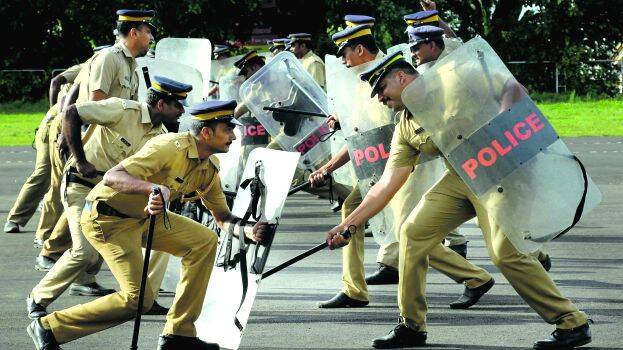

The Supreme Court has directed the Central, State Governments and the Union Territories to install surveillance cameras in the premises of all investigative agencies and police stations in the country. Though this system does exist in several parts of the country, surveillance cameras do not work well or footage obtained from them are of no use when required. Therefore, there is no doubt that the new order of the Supreme Court will be sufficient to produce far-reaching benefits. Even the courts are aware of the harassment that takes place in the police stations. The third-degree treatment which is often adopted by the police and other investigative agencies to prove the case remains largely unchanged. The outside world comes to know about such brutal torture only in cases where the accused in custody dies accidentally or is fatally injured. Custody deaths occur at many police stations across the country. In many cases, police try to destroy evidence regarding this in order to save the guilty officers. The tactic of the police to portray the death of the tortured accused as suicide or illness is also widely known.
The authorities must not only install CCTV cameras but also ensure that the cameras are working properly. This will be the responsibility of the officer in charge of the station. It has been specifically stated that cameras must be capable of capturing night scenes with clarity. The court ruled that camera eyes should reach all areas of the police station such as the lockup rooms, gates, corridors, lobby and reception. There is a special reason to say that the exterior of the station building should also be within camera range. Such a direction indicates that the police might try to manipulate the accused by "treating" him at a place outside the camera range. It has not been long since an accused was taken to the second floor of a police station in Kottayam district for 'interrogation' before he was killed. CCTV systems are not functioning properly in most police stations as well as in prisons, where maximum security is required. Even when there are cameras, all sorts of illegal activities take place there. That is why the authorities must make sure that the installed cameras are working properly. Cameras, that are capable of storing recorded footage for at least a year and a half and retrieving it at the required stages, must be installed. Usually, police rely on cameras installed by private individuals for their own protection to provide evidence at the required stages. Though cameras have been installed across Kerala at the government's expense, most of them are not functioning properly. The situation is no different even in Kerala Secretariat building. The Supreme Court order is also applicable to the central investigative agencies. Since they do not have any special rooms for questioning, it has been directed that a camera system should be set up in the rooms selected for questioning.
Attempts have been made for more than seven decades to reform and modernize the police force. If the police are still using uncivilized and inhumane ways to prove the crimes, it shows that the system is not working properly. Governments could have taken steps to reform the police without waiting for the intervention of the courts. Political parties have often raised their voices against police brutality. Yet, they hardly try to change anything after coming to power. Moreover, they do not hesitate to use the police for their own interests.
In addition to the important order of installation of the surveillance camera system at the offices of all investigating agencies, the apex court has put forward another very important condition. It has directed to set up human rights courts in every district of the country. Such courts should deal with cases of human rights violations. All cases related to human rights violations, including torture cases against the police, should be referred to the Human Rights Court. At present, the Human Rights Commission is operating in all states and is considering cases related to human rights violations. Such cases can be transferred here when the human rights courts start functioning as per the directions of the Supreme Court. Let us hope that the new directions of the Supreme Court will help in curbing the frequent human rights violations by the police. It can also be seen as an attempt to give a new human face to the country's police force.